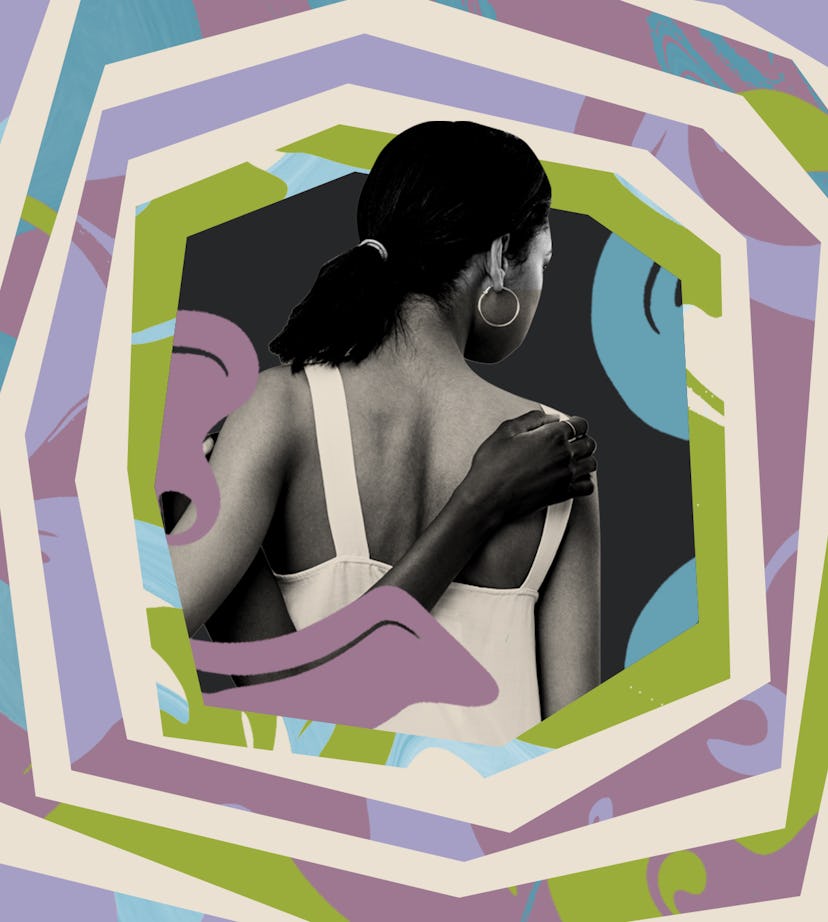Rule Breakers
This Black History Month, Stop Asking Black Women To Do The Most
I am starting to feel like cauliflower.

It’s Black History Month again, and this year, I’ve been thinking about how, in public discourse, Black women have basically become the 21st-century superfood, cauliflower. Black women are the cauliflower of people, and we’re tired of it.
Bear with me. Remember those days when cauliflower used to be the understated filler to a frozen bag of carrots and broccoli? I do. But that time has passed. Not anymore. Cauliflower is out here saving the planet. One minute she is rice. Then she is steak. All on the same menu. No, Cauliflower has to be screaming, enough is enough! Cauliflower doesn’t want to be both your personal savior and a plate of buffalo chicken tenders. Milk… and your boyfriend. She is tired of answering Mark Ruffalo’s prayers. She doesn’t need any more articles fetishizing her political achievements. Cauliflower knows she’s a snack. But she is done with being out here as the appetizer, the entree, the side dish, and the whole dang meal.
My ace girl, the writer Kristin White, and I started feeling like cauliflower two weeks ago, as we sat in her kitchen answering a barrage of Black History Month work requests. Colleges, corporations, and bookstores, all looking for Black women to “help brainstorm” ways their institutions can fill February’s obligatory calendar of Black appreciation. An email inbox of near-strangers requesting we teach them how to celebrate Black culture while showing little respect for Black people. They send us messages saying how eager they are to work with us — in February, only in February. And then when we write back asking about their budget and compensation, we get some cloying note about how “small” their budget is and how “embarrassed” they feel to offer so little, but think how “great” it will be for us to connect with their audience. … We know the drill, these emails happen every year.
“But I’m a flower,” I say to Kristin, “‘flower’ is in my name.” I think of cauliflower less as the sturdy workhorse of the paleo aisle than the complex veg that can go from “pizza crust” to floral bouquet, if given the chance to change setting. “All I wanna do is bask in the sun in the garden arrangement outside a Midwestern Chase Bank.” Kristin was frying up garlic and onions while I used the warm comfort of the kitchen as an opportunity to scroll through my backlog of “tragedy DMs”: I know you’ve been watching the news… These unprecedented times… I can’t wait to read/hear/see what you’ve got to say about all this… I know you’re probably home writing the best stuff of your life right now… We’d love to have you…
I want to let everyone know right now. When news hits of a murder, protest, or insurrection, I can be found in one of two places: in the kitchen or in the bathtub. I’m not dutifully recording the fractured corruption of white supremacy. I’m soaking in rose petals. I’m drinking hibiscus hot tea beside a lavender-scented candle. I’m not available to write your anti-racism booklist. I’m not planning your Black History Month syllabus. You don’t need me to curate a blog list of Black-owned restaurants in predominantly-Black countries, alphabetically, so white people can feel good for remembering one month-long Blackiversary. I am not an endless newsfeed of Black info. I am a houseplant with louder feelings. My June Jordan self-care is flower life.
When news hits of a murder, protest, or insurrection, I can be found in one of two places: in the kitchen or in the bathtub.
I’m exhausted by the expectation that Black women be envoys to a better world without anyone taking notice of how difficult it is for Black women to live in it. In this frustration, I know I’m not alone. Many of us can’t turn down the perfunctory Black-centric work that shows up. Many of us don’t have that luxury. And some of us don’t want to, worried about what these curations of Black art and Black life will look like without us. But here’s how we feel: there are hundreds of thousands of topics we’re great at discussing that don’t require “Black” as a qualifier. And we’d be thrilled to do so — 11 months out of the year.
One of the hardest things for me to hear when a Black woman is celebrated for doing admirable work is that she is finally “getting her flowers.” I heard this when Stacey Abrams and the founders of the Black Lives Matter movement (Alicia Garza, Patrisse Cullors, and Opal Tometi) were all nominated for the Nobel Peace Prize. And over and over again in memory of Cicely Tyson’s 96 years of trailblazing, which ended on Jan. 28. There’s this relief people feel when they see Black women honored that unsettles me. Because as much as the world tries to fashion the success of Black women into something magical, we are just regular people asked to do impossible things. Like alter the tide of discrimination. Like fix systems we did not create but have now been pressured into saving.
Black women don’t just need praise for all of this. We need sponsorship. We need fair wages for freelance work and an end to the income gap disparity. We need college loan debt forgiveness. We need strong allies and mentors. Black women need people who stick up for us in the workplace this month, instead of asking us to build PowerPoints of “Black achievement,” or using us as scapegoats for whatever sh*t goes south. We are out here, on the ground, bearing the brunt of the world’s physical, emotional, and psychic labor. Like any flower, we need to be nurtured and protected.
This article was originally published on